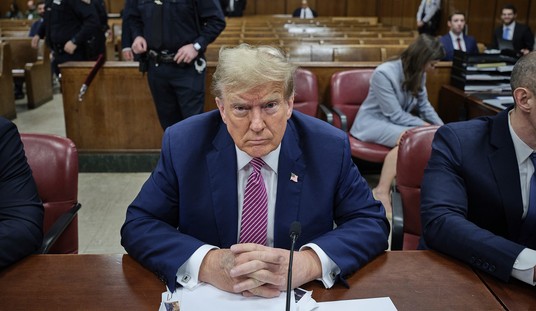Most polls had shown a small margin for remain, and betting markets made it an odds-on favorite. Hedge funds went long on the assumption "Remain" would win. It had the support, after all, of Conservative Prime Minister David Cameron, the leftist Labour leader Jeremy Corbyn, Bank of England President Mark Carney and the financial leaders of the City of London.
But as the returns came in, Brexit started running farther and farther ahead, toward its eventual 52 to 48 percent victory. If you look at the map of the results, you see that Scotland, which voted 55 to 45 percent against becoming an independent country in September 2014, was voting 62 percent "Remain." Northern Ireland, concerned about relations with the Irish Republic, voted 56 percent "Remain." London, with its large cosmopolitan immigrant population and rich financial community, voted 60 percent "Remain."
But in between London's M-25 ring road and the Scottish border, there were only a few splotches of "Remain" support. Manchester was pro-remaining, but Birmingham voted "Leave." The industrial North East, a Labour stronghold that Tony Blair represented in Parliament, voted 58 percent "Leave." So did the Conservative-heavy East Midlands, where Margaret Thatcher grew up.
Recommended
On the doorstep of 10 Downing Street Friday morning Cameron announced he would resign by October and leave negotiating exit from the EU to his successor. That looks likely to be Boris Johnson, mayor of London for eight years until last month, who led the "Leave" campaign effervescently, with an appropriate pause after the horrifying murder June 16 of a pro-"Remain" MP in Yorkshire.
That decision will be made by the Conservative Party, most of whose MPs supported "Leave." Johnson, whose toffish self-mockery and humor masks a penetrating mind, would be an intellectually serious and widely popular leader. All the more so if Michael Gove, now justice secretary and "Leave" co-leader, becomes chancellor or foreign secretary. They are a definitive two-man refutation of the canard that only the stupid and racist supported Brexit.
The Labour Party is in worse shape. In May 2015 it lost all but one of its Scottish parliamentary seats to the Scots Nats. On June 23 "Leave" prevailed in the Labour Party's industrial heartland in the North of England. Its only faithful constituency is Corbyn's home turf, the gentrifying precincts of London. He looks likely to be voted out as leader, with no stellar alternative in sight.
On a visit to Britain in April, Barack Obama called on voters to remain and threatened that Britain would be "at the back of the queue" in any post-Brexit trade negotiations. Interestingly, the 48 percent constituency for "Remain" closely resembles the 51 percent Obama constituency of 2012.
Remain supporters were tilted toward the very highly educated and the uneducated, toward the metropolitan elite and racial and ethnic minorities, toward the very young -- and away from the white working class and the relatively old. Both constituencies are geographically clustered, in central cities, sympathetic suburbs and university towns, where so many people drip with contempt for those without the good taste to live nearby.
Such people are quick to call Brexit voters racist, and clearly immigration was an issue on many of their minds. Britain has had record immigration, with many low-skill newcomers from Europe, while the EU prevents it from admitting more high-skill immigrants from elsewhere.
Angela Merkel's August 2015 decision to allow 1 million supposed refugees into Germany has triggered realistic fears of a flood of violently misogynistic Muslims. Johnson and Gove propose instead a point system like Australia's, to limit intake to those with high skills.
Something else motivated the 17 million who voted "Leave" -- a healthy nationalism and demand for self-government. Most British laws are now passed by unelected EU bureaucrats in Brussels. You don't have to be a racist to prefer Britain's laws be passed by elected and removable members of Parliament.
Were the polls off? Not by much, and mostly because of one thing polls can't forecast -- turnout, higher than May 2015 nationally, but more tepid in pro-"Remain" areas and especially high in the pro-"Leave" factory towns and English countryside. Could differential turnout be decisive here, producing a result most elites dread in November? Maybe. Donald Trump, who as votes were counted jetted into Scotland to promote a golf course, probably thinks so.

























Join the conversation as a VIP Member